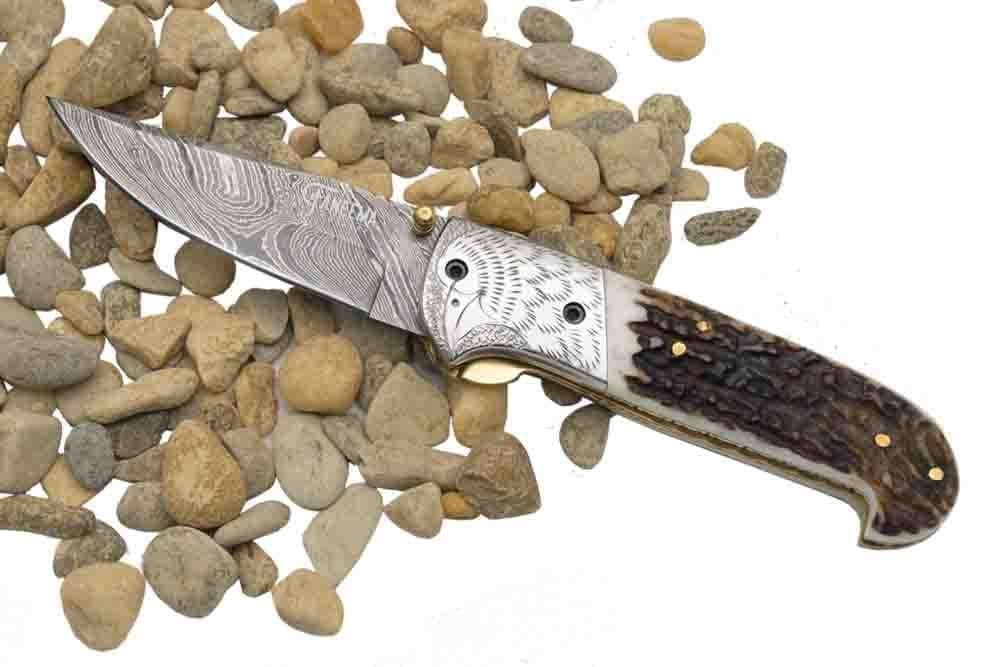The allure of Damascus steel, with its mesmerizing patterns and reputation for exceptional performance, has extended beyond kitchen knives to the realm of pocket knives. These pocket-sized marvels have captured the attention of knife enthusiasts and everyday carry (EDC) aficionados alike. But does the hype surrounding Damascus pocket knives truly live up to the expectation?
A Quick Look at Damascus Steel
Damascus steel is a testament to the art of metallurgy. Created through a meticulous process of folding and welding different steel types, it results in a blade renowned for its hardness, flexibility, and resistance to corrosion. The distinctive patterns formed during this process make each Damascus knife a unique piece. However, it’s essential to distinguish between true Damascus steel and modern interpretations. Authentic Damascus steel is a historical material with specific properties, while many modern knives use patterns forged from stainless steel for aesthetic appeal.
Pros and Cons Of Damascus Pocket Knives

Damascus pocket knives offer several advantages. These include;
- Less sharpening requirement: Their exceptional hardness translates to superior edge retention, meaning you’ll spend less time sharpening.
- Good Design: The aesthetic appeal of the Damascus pattern is undeniable, making these knives a conversation starter.
- Durable: The durability of Damascus steel, when produced correctly, ensures your pocket knife can withstand the rigors of everyday use.
However, there are also drawbacks to these knives;
- Expensive: Damascus pocket knives typically come with a higher price tag compared to their stainless steel counterparts.
- Too many maintenance requirements: Regular maintenance is essential to preserve the knife’s beauty and performance
- Moreover, the intricate patterns of Damascus steel can be prone to chipping if not handled with care.
Comparing Damascus to Other Materials
To fully appreciate the value of a Damascus pocket knife, it’s essential to compare it with other popular materials. Stainless steel is a common choice for pocket knives due to its affordability, corrosion resistance, and ease of maintenance. While it offers good performance, it generally lacks the hardness and edge retention of Damascus steel. Carbon steel, on the other hand, provides exceptional edge retention but is susceptible to rust and requires more careful maintenance.
Is the Hype Justified?
We can all agree that the beauty of a Damascus pocket knife is undeniable. Its combination of performance, aesthetics, and durability makes it a coveted item for many. However, whether or not it’s worth the hype depends on individual preferences and priorities.
For knife enthusiasts and collectors, a genuine Damascus pocket knife is undoubtedly a prized possession. The unique patterns, exceptional performance, and historical significance justify the higher price point. However, for the average user who prioritizes affordability, low maintenance, and practicality, a stainless steel pocket knife might be a more suitable choice.
It’s essential to consider the quality of the Damascus steel used in the knife. Some manufacturers use modern techniques to create Damascus-patterned blades from stainless steel, which may not offer the same performance as traditional Damascus steel.
Ultimately, the decision to invest in a Damascus pocket knife is a personal one. By understanding the material’s properties, weighing the pros and cons, and considering your specific needs, you can make an informed decision.







